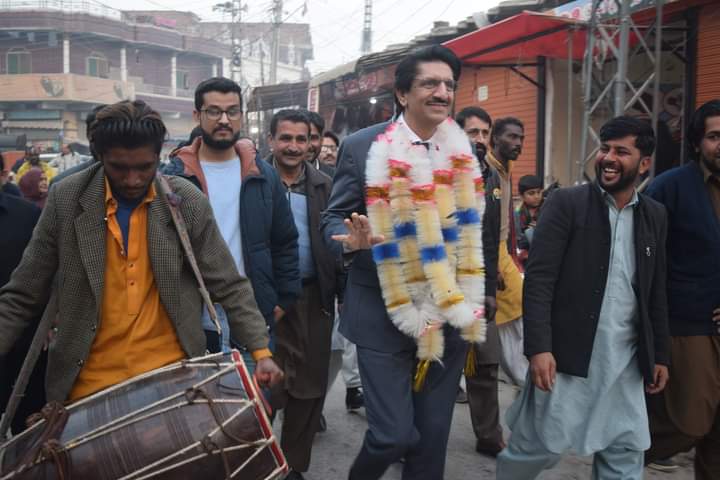KASHMIR AND PAKISTAN: A STRUGGLE FOR PEACE
Dr. Muhammad Shahzad Ashfaq
Post-Doctorate (Peace Education)
International Islamic University
Islamabad
The region of Kashmir has been at the center of a longstanding conflict between India and Pakistan, with both countries claiming it as their own. This territorial dispute has led to numerous conflicts and tensions in the region, resulting in a significant impact on the lives of Kashmiris. While various efforts have made to resolve the conflict and establish peace in the region, the struggle continues. Kashmir and Pakistan, focusing on the ongoing struggle for peace.
The history of Kashmir’s conflict dates back to the partition of Hindustan in 1947 when the princely state of Jammu and Kashmir became a disputed territory claimed by both Hindustan and Pakistan. The situation escalated into full-scale wars between Hindustan and Pakistan in 1947, 1965, and 1971, with both countries failing to reach a lasting resolution on the status of Kashmir. The Line of Control (LoC) now separates the region into Indian-administered Jammu and Kashmir and Pakistan-administered Azad Jammu and Kashmir.
Pakistan has been a strong advocate for the right to self-determination of the Kashmiri people, arguing that they allow deciding their own political future through a referendum as promised by UN resolutions. However, India maintains that Kashmir is an integral part of its territory and has rejected any third-party intervention in the dispute. This differing stance has led to a deadlock in negotiations and perpetuated the conflict in the region.
The struggle for peace in Kashmir involves not only the territorial dispute between India and Pakistan but also the human rights violations and unrest faced by the Kashmiri population. The people of Kashmir have endured years of violence, militarization, and restrictions on their freedom, leading to a deteriorating humanitarian situation. The presence of armed forces, curfews, and communication blackouts has further exacerbated the challenges faced by Kashmiris, affecting their daily lives and well-being.
Efforts to achieve peace in the region have been ongoing, with various dialogues, agreements, and confidence-building measures attempted by India and Pakistan. However, the inability to address the root causes of the conflict, including the aspirations of the Kashmiri people, has hindered progress towards a sustainable peace settlement. External factors, such as the United Nations and the international community, have also been involved in mediating the dispute.
UN facilitate a lasting resolution s in Kashmir, including its special status by added to the challenges faced by the region. The decision to bifurcate the state into two Union Territories has raised concerns about the erosion of Kashmiri identity and autonomy, leading to widespread protests and international criticism. The communication blackout and restrictions on movement have intensified the sense of isolation and uncertainty among Kashmiri residents.
The persistent violence not only destabilizes South Asia but also hampers socioeconomic development in Kashmir, perpetuating a cycle of poverty and resentment that fuels extremism. One key argument for the resolution of this conflict lies in the humanitarian implications. The people of Kashmir have suffered immensely due to military operations, loss of life, and displacement. A peaceful resolution would prioritize human rights and provide a platform for dialogue that acknowledges the aspirations of Kashmiri citizens. Furthermore, it would foster regional stability, allowing both India and Pakistan to redirect resources towards education, healthcare, and infrastructure rather than militarization.
Pakistan views its claims as a matter of self-determination for the Kashmiri people, while India emphasizes its sovereignty over the region. This fundamental difference in perspective highlights how historical narratives shape national identities and influence diplomatic relations. Despite their conflicting positions, both countries share common challenges that hinder peace efforts. Economic instability, religious extremism, and political unrest are prevalent in both Pakistan and India. These internal issues often exacerbate hostility towards one another, diverting attention from collaborative solutions to the Kashmir problem. Moreover, international involvement complicates matters further; external powers often leverage the conflict for strategic interests rather than promoting genuine reconciliation.
The struggle for peace in Kashmir continues to be a complex and multifaceted issue that requires a comprehensive and inclusive approach. Both India and Pakistan must engage in meaningful dialogue and negotiations to address the legitimate concerns of the Kashmiri people and find a mutually acceptable solution to the conflict. The international community also has a role to play in facilitating a peaceful resolution and promoting human rights in the region. Only through concerted efforts and genuine commitment to peace can Kashmir move towards a future of freedom, stability and prosperity.
The international community plays a crucial role in facilitating dialogue between India and Pakistan. External mediation could help bridge divides and foster an environment conducive to negotiations. Both nations can work towards de-escalating tensions and addressing humanitarian concerns in Kashmir. The potential benefits of peace economic cooperation, cultural exchange, and enhanced security far outweigh the costs associated with continued conflict. Kashmir and Pakistan are intertwined through their struggle for peace, their divergent perspectives on sovereignty create significant barriers to resolution. A comprehensive approach that addresses not only territorial claims but also socio-economic concerns is essential for fostering lasting peace in this volatile region.



